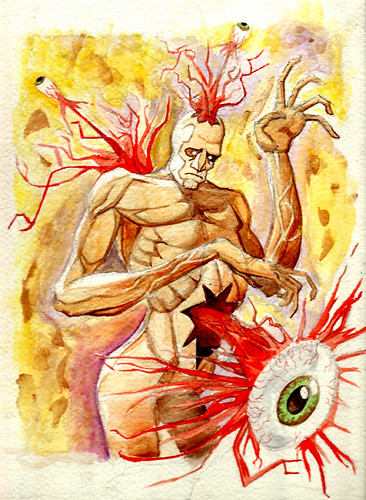 ScientificBlogging | Contrary to the standard view, genes are not “unities of heredity” (and therefore do not last as “individuals”) for the simple reason that crossing-overs (the molecular processes that shuffle bits and pieces of genetic material, the real reason for sex) do not respect gene’s boundaries, but rather cut genes into pieces and shuffle them.
ScientificBlogging | Contrary to the standard view, genes are not “unities of heredity” (and therefore do not last as “individuals”) for the simple reason that crossing-overs (the molecular processes that shuffle bits and pieces of genetic material, the real reason for sex) do not respect gene’s boundaries, but rather cut genes into pieces and shuffle them.Indeed, as Godfrey-Smith points out, for this and other reasons sophisticated theoretical biologists are abandoning talk of “genes” altogether, referring instead to the more diffuse concept of “genetic material.” As PGS puts it, this is “a stuff, not a discrete unit.”
The interested reader will have to read PGS’s book or wait for my review (forthcoming in Notre Dame Philosophical Reviews) to learn more about the issue of the nature of genes. But what struck me toward the end of that chapter is Godfrey-Smith’s unusual (and, I think, rather compelling) argument that talk of selfish genes (and memes) is one example of a broader “agent-positing” discourse that is shared, of all people, by some evolutionary biologists (though by all means not all, yours truly being one of many exceptions) and theologians!
Here is how PGS himself has characterizes the phenomenon: “Two explanatory schemata can be distinguished within the general agent-positing category ... The first is a paternalist schema. Here we posit a large, benevolent agent, who intends that all is ultimately for the best. This category includes various gods, the Hegelian ‘World Spirit’ in philosophy, and stronger forms of the ‘Gaia’ hypothesis according to which the whole earth is a living system. The second schema is a paranoid one. Now we posit a hidden collection of agents pursuing agendas that cross-cut or oppose our interests. Examples include demonic possessions narratives, the sub-personal creatures of Freud’s psychology (superego, ego, id), and selfish genes and memes.”
I must say that I am rarely struck by a novel enough idea that my first reaction is “wow.” This is one of those instances. There is something profoundly intellectually satisfactory in suddenly seeing disparate phenomena like Augustine’s god and Dawkins’ memes as different aspects of an all-too human tendency to project agency where there is none. Not to mention, of course, the admittedly wicked pleasure I’m getting from imagining Dawkins cringing at the comparison.


0 comments:
Post a Comment